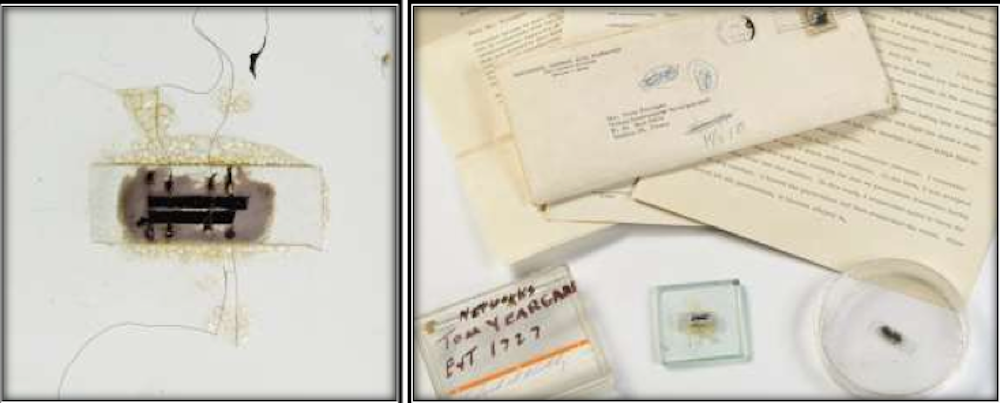Microchip That Birthed Modern Computing Could Fetch $2 Million

NEW YORK — A prototype microchip designed by famed inventor Jack Kilby, who went on to create the world's first integrated circuit that revolutionized the world of computing, will hit the auction block tomorrow (June 19) here in Manhattan.
The vintage piece of technology, built more than 55 years ago, could fetch up to $2 million, according to Christie's, the auction house handling the sale.
In 1958, Kilby used the prototype to demonstrate that a set of microscopic electronic circuits could be placed on a single, small chip. At the time, Kilby was an electrical engineer at Texas Instruments, a Dallas-based company that manufactures semiconductors. [See Photos of the Microchip & Other Auction Items]
Christie's calls the prototype microchip "the birth certificate of the modern computing era," because the invention helped spawn "technological breakthroughs that dramatically reduced the size and cost of computing power."
Microchips have since become ubiquitous in modern electronic systems, and on Dec. 10, 2000, Kilby won the Nobel Prize in physics for his invention. The engineer died in 2005 at the age of 81.
"Microchips are now absolutely everywhere," said James Hyslop, head of Christie's Travel, Science and Natural History department. "If you have a smartphone on you, there are probably going to be about 20 of them in there, and most modern computers will have at least 20 in them. The microchip is one of the fundamental building blocks of modern computing."
In particular, the microchip enabled engineers to miniaturize the massive computers that characterized the first half of the 20th century, Hyslop told Live Science Tuesday (June 17) at a preview event for the sale. "Without it, miniaturization wouldn't have happened, and computers would have remained these big, building-size instruments," he said.
Sign up for the Live Science daily newsletter now
Get the world’s most fascinating discoveries delivered straight to your inbox.
Tom Yeargan, who was a technician on Kilby's team at Texas Instruments, built the chip in 1958. The artifact remained in Yeargan's private collection and is being sold tomorrow by members of his family, according to Christie's.
The historic microchip is mounted on glass and enclosed in a plastic case that belonged to Yeargan. The sale will also include a label signed by Kilby, and a three-page statement by Yeargan that details the chronology and building of the integrated circuit, dated March 6, 1964.
The microchip could attract interest from collectors of vintage technology who recognize the unique value of this piece of technological history, according to Christie's representatives.
"It's one of the earliest-recorded integrated circuits still in private hands," Hyslop said. "This was before the mass production of microchips in the 1960s, and it's one of the prototypes, so it's incredibly rare — this is probably the only chance that will come up in my lifetime."
Follow Denise Chow on Twitter @denisechow. Follow Live Science @livescience, Facebook & Google+. Original article on Live Science.

Denise Chow was the assistant managing editor at Live Science before moving to NBC News as a science reporter, where she focuses on general science and climate change. Before joining the Live Science team in 2013, she spent two years as a staff writer for Space.com, writing about rocket launches and covering NASA's final three space shuttle missions. A Canadian transplant, Denise has a bachelor's degree from the University of Toronto, and a master's degree in journalism from New York University.









